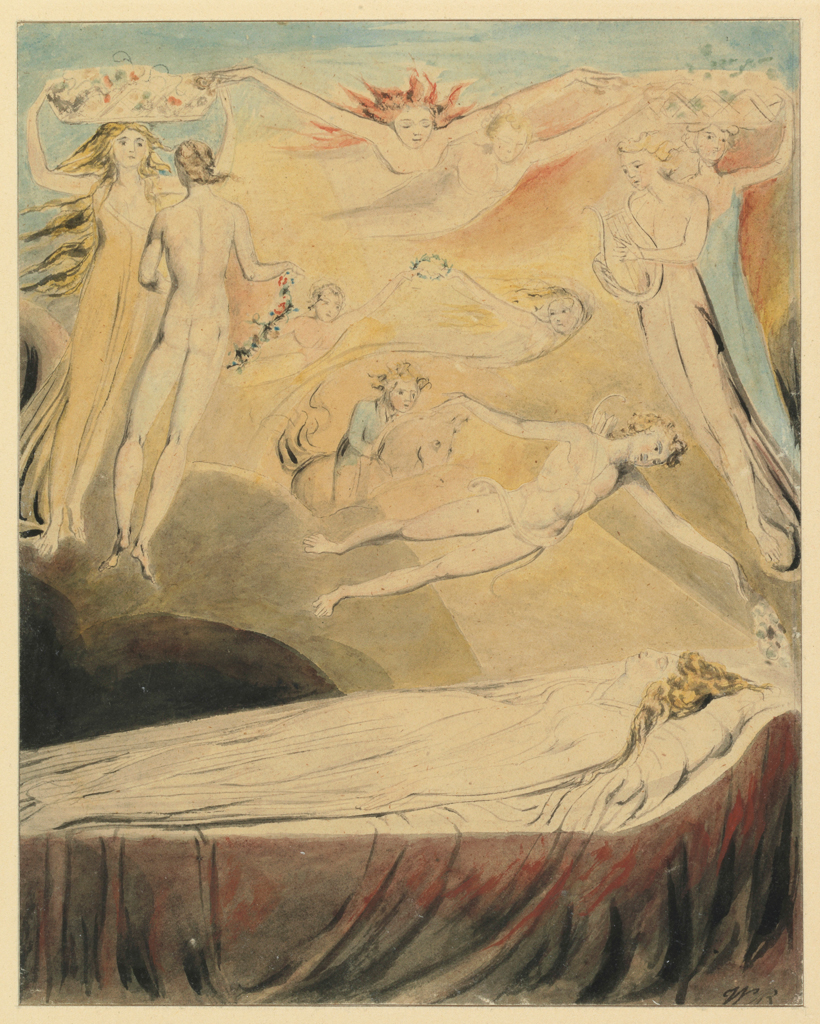 British Museum
British Museum
'The Christian Triumph', illustration to Young's 'Night Thoughts'
Frontispiece to Night the Fourth
1795-1797Blake seems to have lived through the 7TH and 8TH chapters of Romans. His struggles with the demonic forces in the world as well as his self-condemnation and doubt showed him the wretchedness from which only Christ could release him. Emerging into the Light gave him the strength to continue conquering.
Romans 7[
23] But I see another law in my members, warring against the law of my mind, and bringing me into captivity to the law of sin which is in my members.
[
24] O wretched man that I am! who shall deliver me from the body of this death?
[
25] I thank God through Jesus Christ our Lord. So then with the mind I myself serve the law of God; but with the flesh the law of sin.
Letters, 22, (E 719)
[To] Mr Butts, Gr Marlborough Street
"Felpham Novr. 22: 18O2
...
But You will justly enquire why I have not written All this
time to you? I answer I have been very Unhappy & could not think
of troubling you about it or any of my real Friends (I have
written many letters to you which I burnd & did not send)
...
And now let me finish with assuring you that Tho I have been
very unhappy I am so no longer I am again Emerged into the light
of Day I still & shall to Eternity Embrace Christianity and Adore
him who is the Express image of God but I have traveld thro
Perils & Darkness not unlike a Champion I have Conquerd and shall
still Go on Conquering Nothing can withstand the fury of my
Course among the Stars of God & in the Abysses of the Accuser My
Enthusiasm is still what it was only Enlarged and confirmd"
Romans 8[
34] Who is he that condemneth? It is Christ that died, yea rather, that is risen again, who is even at the right hand of God, who also maketh intercession for us.
[
35] Who shall separate us from the love of Christ? shall tribulation, or distress, or persecution, or famine, or nakedness, or peril, or sword?
[
36] As it is written, For thy sake we are killed all the day long; we are accounted as sheep for the slaughter.
[
37] Nay, in all these things we are more than conquerors through him that loved us.
[
38] For I am persuaded, that neither death, nor life, nor angels, nor principalities, nor powers, nor things present, nor things to come,
[
39] Nor height, nor depth, nor any other creature, shall be able to separate us from the love of God, which is in Christ Jesus our Lord.
Post on
second part of Blake's letter to Butts (Nov 22, 1802):
ON THE WALK TO LAVANT.


